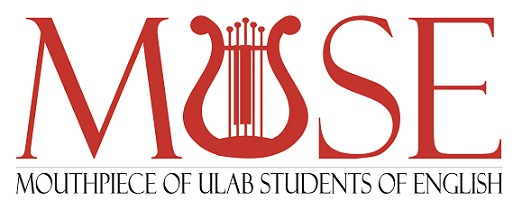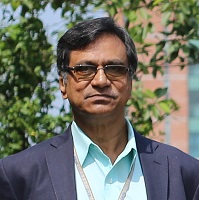An interview with Kaiser Haq, Professor & Dean of the School of Arts and Humanities (SAH) at ULAB
-By Tanzila Mobarak Joty
In current times there is an assumption that- “pure literature is a dying subject”, what is your opinion about that? Do you even think that something called “pure literature “really exists in the postmodern times?
What is “pure literature, ” or just “literature” for that matter? We all know that “literature” is a concept of relatively recent provenance. For centuries “Poesie” performed a role similar to that of “literature” today; and in our subcontinent, we’ve had “kavya”. Most people, I believe, would agree that when we categorize a piece of writing as “literature” we recognize that it has a certain value that is non-utilitarian and that we refer to as literary or aesthetic. I am aware that in saying this we are guilty of circular reasoning. But that doesn’t matter, for as readers we habitually square the circle effortlessly. For instance, when we say that Boswell’s “Life of Johnson” is literature but Dale Carnegie’s “How to Win Friends and Influence People” isn’t. “Literature” in this sense is as alive as ever, even among postmodernists. What Pynchon, Vonnegut, Marquez, Kundera would identify as great literature would not be essentially different from a traditionalist’s list of masterpieces.
Having got rid of the epithet “pure”, my response to the first question would be: when was literature a living subject? In India, scholars probably focused on aesthetics and philosophy and wrote commentaries on texts. In ancient Europe, Poetics and Rhetoric were taught to the upper classes. In Britain, one could not study English literature until the early twentieth century. Before that, it formed the backbone of a liberal arts education in colonial India. For centuries a liberal arts education in Britain meant studying Classics, and that included studying the classical languages, ie Greek and Latin and the literary, philosophical and historical and other texts in these languages. It’s only in the twentieth century, with the post-Eliot dominance of Practical Criticism and New Criticism that a narrow form of literary education, based on close reading of texts, virtually bracketing out history and biography. But this was a short-lived orthodoxy, and literary study since the sixties has been linked to various interdisciplinary approaches, some of them deriving from post-Structuralist Theory.
Nowadays we see that universities in our country are focusing on teaching skill based English programs more than knowledge based English programs. How do you see this, personally? What do you think, where is this skill-based English teaching method leading us to actually?
It’s a good idea to teach skills that have practical use in professional life, but the teaching of such skills has to be based on the acquisition of knowledge. Focus on acquiring skills without enhancing one’s knowledge will result in the creation of robot-like individuals.
Do you think literature could be taught from interdisciplinary perspectives? If so, what kind of problems do you think a teacher or student may face in terms of contextualizing any non-native text in the native frame? What does your experience as a translator say about that?
Interdisciplinary approaches are an integral part of literary education.
Translated texts can be effectively used in the English department. Teaching translated South Asian texts alongside other literatures is an interesting way to broaden our perspective.
Not only you are an internationally recognized translator and poet, we know that you had actively participated in the Liberation War of 1971. With the month of victory in our mind, how do you feel as a freedom fighter yourself, the young generation can attain the liberty of the mind as far as different forms of expressions are concerned?
The younger generation will have to find their own answers to the problems and questions that the country faces.
As we can see, you are still physically and mentally very fit. Can we know the secret behind this long-lasting physical fitness and its good impact on your mind?
Thank you. I wish I were more fit; age does take a toll, though it may be less in some cases. There’s no secret: any health guide will tell you what is good for health and what isn’t. You are quite right to say that good health has a good impact on the mind. To put it in a crude slogan: No body, no mind.
One of the central questions in psychology and philosophy concerns the mind/body problem. What is your opinion on this issue? Is the mind part of the body, or the body part of the mind? If they are distinct, then how do they interact? And which of the two is in charge?
These are questions under investigation at present by philosophers and cognitive scientists. I am inclined towards Merleau-Ponty’s view that the mind is always embodied.
What is your opinion about the present day mania for bodily “perfection?” Can we say that this mania of bodily “perfection” is becoming rather “bawdy” in nature nowadays?
Well, any obsession is carrying things too far.
We know that poets most likely aspire to grasp the unknown “sublime “, which is beyond bodily perception. If that happens to be the case, how does it work for you and on what levels?
Oddly enough, poets aspiring to grasp the sublime, ie visionary poets like Blake, shamanistic poets like Ginsberg and others, actually perceive extraordinary things. I don’t, mercifully. To me ordinary aesthetic value, as realized in a striking image or a memorable phrase, is sublime enough.
Thank you very much, sir, for giving us some of your valuable time!
-Thank you!

